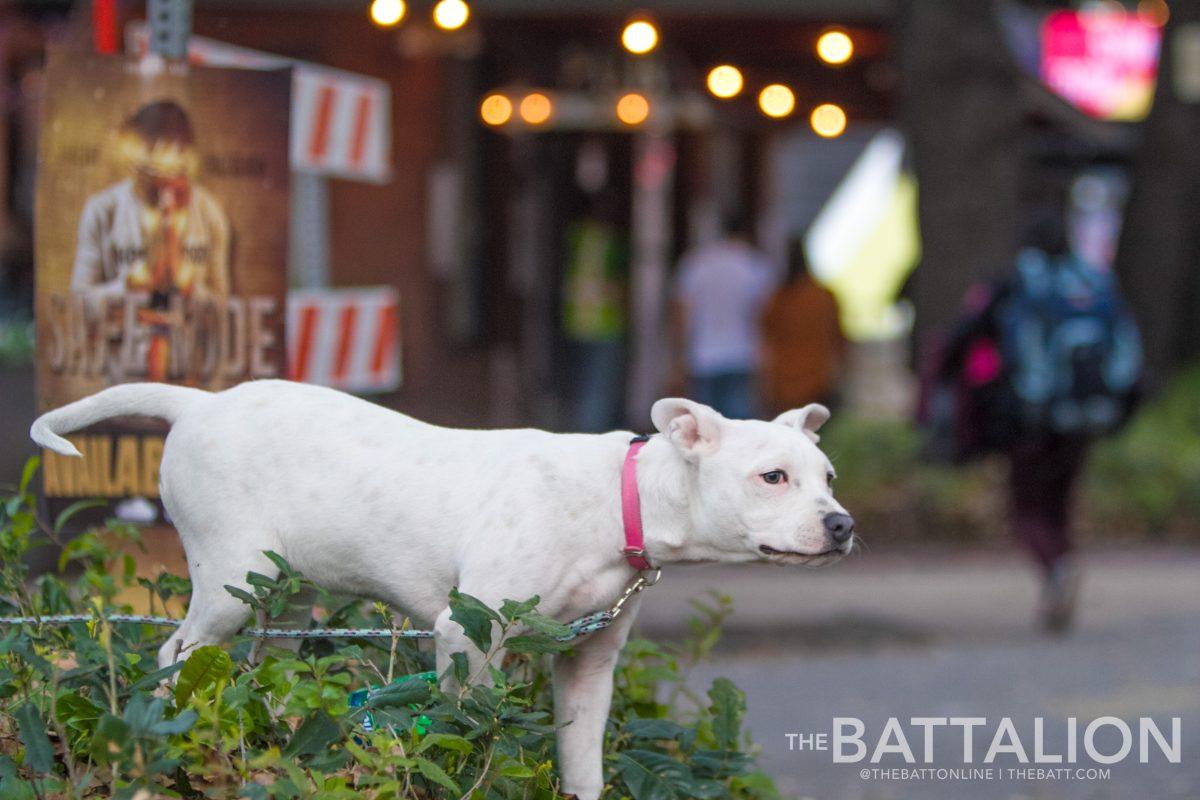A study led by researchers at Texas A&M has detected the B.1.1.7 COVID-19 variant from the United Kingdom for the first time in Brazos County in a dog and a cat.
The A&M research team, led by Sarah Hamer, a veterinary epidemiologist in the College of Veterinary Medicine and Biomedical Sciences, was the first to detect the variant in pets worldwide. The team has been working since June 2020, testing household animals with at least one COVID-19-positive human living in the same space. This research has been done in collaboration with the College of Veterinary Medicine, the Brazos County Health Department, the Centers for Disease Control and Prevention and several other federal and statewide health resources.
Hamer said the study aims to learn more about the potential transmission of COVID-19 between humans and animals, the effect of the coronavirus on animals and if animals function as a reservoir for the virus in communities.
“Our study and others have shown that household pets are susceptible, and we’re still working out what that means as far as pet health,” Hamer said. “For both public health and veterinary health benefit, it makes sense to learn more about when pets get infected, how commonly they get sick and things like that.”
Since June 2020, more than 450 animals have been a part of the study, with over 60 confirmed cases of COVID-19 among the studied animals. Hamer said the animals have all recovered quickly, and less than a quarter of the animals that tested positive showed symptoms of the disease. Most commonly, animals’ symptoms included sneezing, coughing, diarrhea and being lazier than normal.
“When their owner did report [symptoms], it was usually respiratory disease symptoms, so fortunately they were all pretty mild,” Hamer said. “All of these pets recovered on their own and are healthy.”
The pets that tested positive for the U.K. variant of COVID-19 were initially tested Feb. 12 and again on March 11, and are currently healthy, Hamer said. The animals, a black labrador mix and a domestic shorthair cat, had minor symptoms, predominantly sneezing.
Hamer said the research is very important for seeing how the virus can move through the community and affect our pets, but it couldn’t be done alone. Postdoctoral research associate in the Department of Entomology Chris Roundy works on processing and testing the animal samples in the lab and said the interdisciplinary team has been necessary for the study.
“Our diagnostic pipeline involves the coordination of our field and lab teams as well as external organizations,” Roundy said. “Animal samples are tested with multiple assays in biosafety level two and biosafety level three labs. The scale of research we have been able to conduct would not be possible without the effort of all of our team members.”
Called the “One Health” approach, the team is made of a multitude of agencies to ensure every base is checked. Gabriel Hamer, an associate professor in the College of Agriculture and Life Sciences, said having so many people involved has allowed for accurate results and a smooth-running lab.
“This is a great example of a ‘One Health’ project involving collaborative partnerships among university, county, state and multiple federal agencies,” Gabriel Hamer said. “Each agency provides a critical role in this project addressing the transmission of [COVID-19] variants of concern at the human-animal interface.”
Sarah Hamer advises pet owners who test positive for COVID-19 to be careful with their pets. She said this study shows they’re just as susceptible as humans are, but the team still doesn’t have enough information on long-term symptoms and effects among animals.
“If you, as a human, get diagnosed with COVID[-19], it’s really important to isolate not only from other people but also to isolate yourself from animals because transmission can occur,” Sarah Hamer said. “If you’re in a situation where you can’t stay away from [your pets], wear a mask when you’re around your animals would be recommended in the same way we wear a mask around other people.”
For more information on the Texas A&M COVID-19 pets study, visit the research team’s website.
UK COVID-19 variant detected in pets in Brazos County
March 28, 2021
Photo by FILE
After extensive research, a collaborative team has detected the first strand of the UK COVID-19 variant in a dog and cat in Brazos County.
Donate to The Battalion
Your donation will support the student journalists of Texas A&M University - College Station. Your contribution will allow us to purchase equipment and cover our annual website hosting costs.




















